Metabolism and It’s Impact on Combat Arts Performance
Using "The Fighter’s Nutritional Blueprint to Create a Combat Arts Ready Body" requires persistence and determination. Training in the martial arts requires our metabolism to be working in optimal shape. Our metabolism controls everything in our body. Most people think that it’s merely the production of energy.
But, it is the defining set of reactions that create life.
Metabolism controls our energy levels, repair abilities, and muscle building. And our metabolism is defined by the health of our digestive system and quality of nutrients we put into it.
Floyd Mayweather often used a high-protein, moderate-carbohydrate diet to fuel his workouts and to ensure that his energy metabolism was optimal for both endurance and power. He frequently consumed lean meats, whole grains, and fruits and vegetables, all of which can help facilitate metabolic processes.

This article will explain the metabolism and how it affects your digestive system. It will also explore the problems that arise from a poor diet.
You can read more on the individual vitamins and minerals in the Nutrients section and a diet plan in the Long Term Weight Loss section.
Metabolism Definition
By formal definition, our metabolism is the set of chemical processes that occur within any living organism to maintain life. On average, over 10,000 chemical reactions occur every second within our body. Proportionally, your metabolism works the fasts and most efficient 5-7 months prior to birth. It slows down continuously from there. Training can be done as long as digestive health is taken care of. It may slow down, but not to the point of being unable to train.
Georges St-Pierre used a diet that was high in protein and healthy fats, but lower in carbohydrates to help manage his weight. He ate multiple small meals throughout the day to keep his metabolism active. He was also known to incorporate fasting, which can stimulate cellular repair processes and increase metabolic efficiency.
There are Two Primary Metabolism Classifications
Anabolism
Catabolism
How Metabolism Works
Our digestive system is the second largest organ system in the body, behind the integumentary system, our skin. It consists of between 28 and 35 ft of twisting and coiling mucous membranes surrounded by dense muscle tissue and blood vessels. It has three primary organs: the esophagus, stomach, and intestine; and multiple accessory organs, including the liver, gallbladder, pancreas, appendix, tongue, and many more.
All of the organs are protected by our ribs and strong core muscles. All martial artists need core muscle training. The muscles take the hits and provide the frame work for our balance and support. Weak core muscles means a weak practitioner.
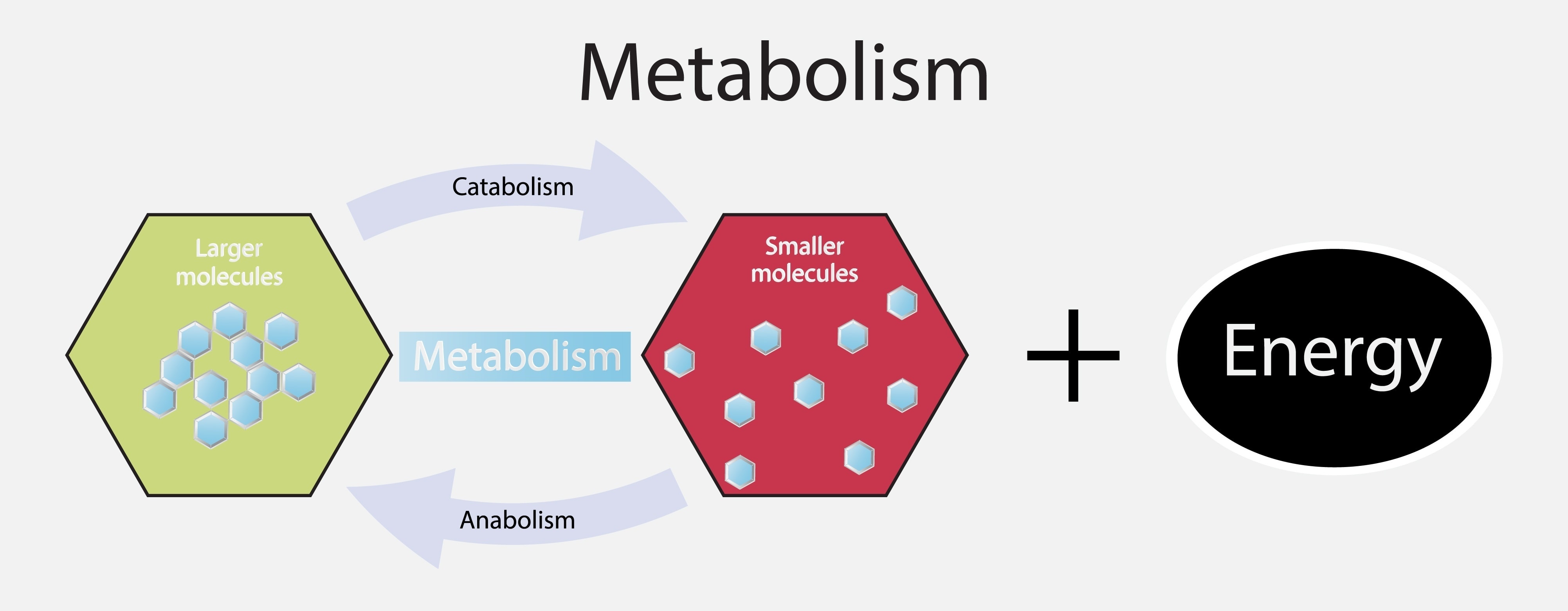
Digestion begins in the mouth. Our lips, teeth, tongue, and salivary glands work to start the breakdown of food into smaller particles. Lingual lipase begins the digestion of lipids, while salivary amylase begins the digestion of carbohydrates. Lysozyme begins the digestion of proteins.
The chewing process mixes all of the enzymes and saliva into a ball of food known as a bolus. The bolus then is swallowed into the throat where strong muscles push it down through the esophagus into the stomach. The stomach is often called the third pit of Hell. This is because of the intense muscular contractions and corrosive digestive juices it produces.
In the small intestine, the pH changes from exceptionally low to quite high. In isolated places, the pH may go as high as 11, but mostly it hovers around a pH of 8. The alkaline conditions help break down protein and fat and support the movement of nutrients into the bloodstream.
Losing Weight Should Not Be a Challenge...
It should be a WAY OF LIFE!
Focus on Your Lifestyle, We Can Help!
The small intestine is not a straight tube; it coils and twists in the gut. Within the small intestine’s inner walls, known as the lumen, there are numerous dips and valleys called cilia. Various molecules from the digested food fall between the cilia’s finger-like projections and absorb into the blood.
Cilia have colonies of probiotic bacteria, fat receptors, and enzymes. These attract vitamins and minerals to a transport channel. This channel then delivers them to the blood. Nearly all fat, protein, vitamins, and minerals are absorbed in the small intestine.
Most of the nutrients are absorbed. The leftover mix then enters the large intestine. Here, it is broken down and mixed with wastes from the body. In the final section of the large intestine, the colon, water is absorbed and the fecal matter is compacted.
Finally, the wastes exit the body via the colon and anus as a bowel movement. Strong lower core muscles and hip muscles encourage proper evacuation of the bowels.
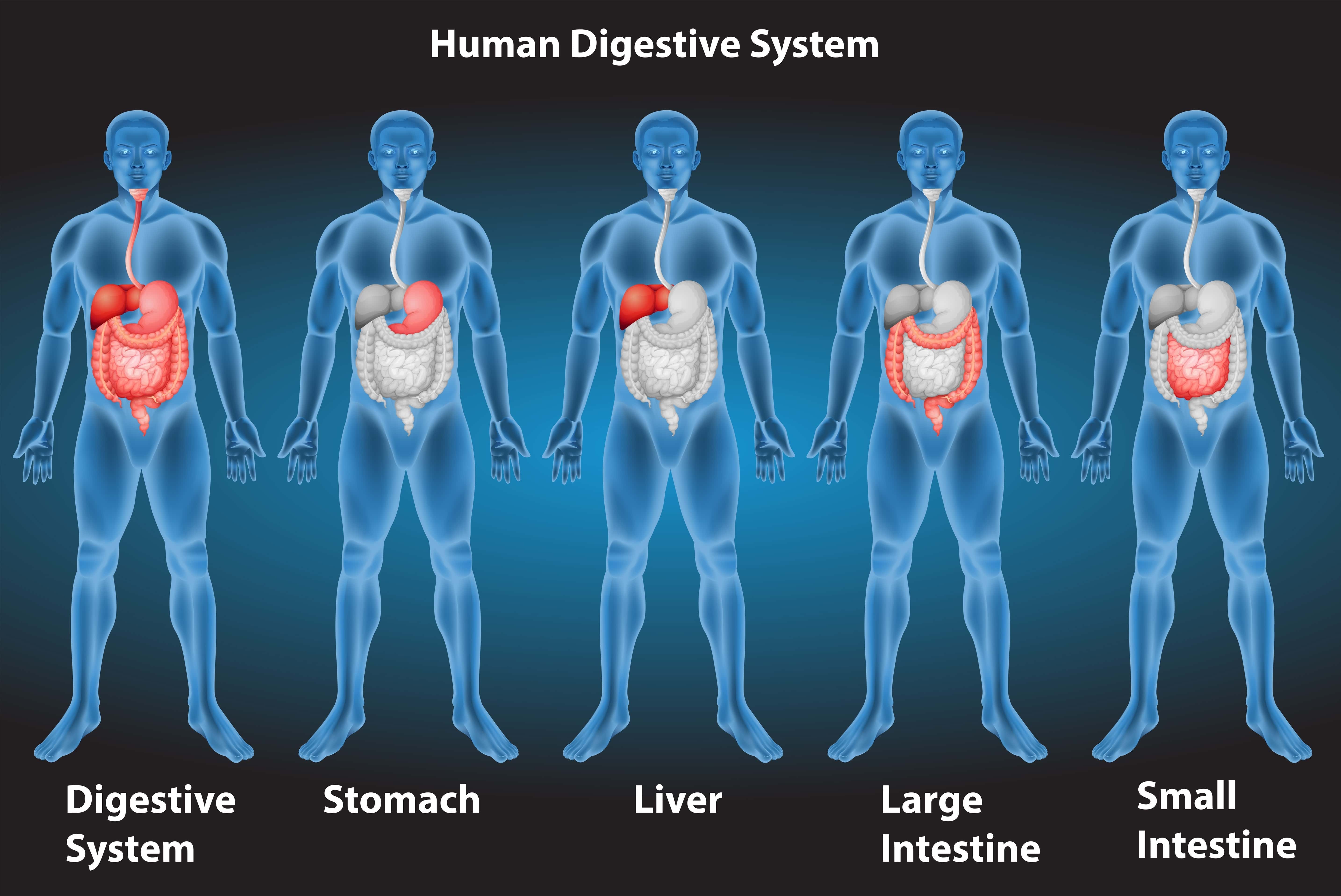
The transit between eating food and evacuating the bowels should take approximately 18 to 24 hours. That means an average, healthy person who eats three meals per day should have three bowel movements per day.
Breakdown of Food into Nutrients
Carbohydrate Digestion
Carbohydrates, or sugars, are very digestible. They break down quickly and absorb into our system fast. If you were to place a piece of bread in your mouth and chew it for 5 minutes, you would be left with a very sweet and sticky mass. Some of the sugars will have already been absorbed through the lining of the mouth, and the change would be detectable on a blood glucose meter.
The stomach generally absorbs the majority of simple carbohydrates. Complex carbohydrates are broken down by various enzymes and bacteria throughout the gut.
Only certain indigestible fibers make their way to the large intestine where they comprise the framework of the feces. These indigestible fibers are essential to your intestine as they help clear out waste and encourage muscular contraction.
Protein Digestion
Protein digestion begins in the mouth and is nearly completed in the stomach. Protein from whole meat sources is quickly broken down and passed through the digestive system. As long as the stomach is producing sufficient acid, proteins will be broken down into the individual amino acids within 2 to 4 hours.

Various amino acids are absorbed in different areas of the digestive system. The movement of the amino acids from the digestive system into the blood is dependent on several other vitamins and active transport systems. One of the myths surrounding the consumption of meat is that the majority of meat we eat passes undigested through this intestine and ferments.
The truth is most meat is broken down in the stomach. Only people who chronically take antacids and acid blockers have trouble digesting meat.
Fat Digestion
Fat digestion is a bit more complicated. We need a higher percentage of fat in our diet than protein and carbohydrates because fats are one of the activators of the transport systems that absorb most vitamins and minerals.
Without sufficient fat, we have difficulty absorbing nutrients. This is why the low-fat diets caused so many incidences of disease, like diabetes and high blood pressure. Most fat is absorbed in the small intestine. Bile from the gallbladder and liver mixes with the broken down food, where it is broken down into smaller, individual molecules that absorb into the body.
The body readily recognizes the different types of fats and will not absorb more than it needs. This is why after a fried food dinner, many people find themselves with oily stool. The oils used in deep frying are not healthy and passed through the digestive system untouched.
Ronda Rousey's diet was focused on consuming a balance of macronutrients. She incorporated whole foods rich in lean protein, complex carbohydrates, and healthy fats to support the efficient breakdown of food into nutrients. She particularly favored natural and unprocessed foods to maximize nutrient intake.
Breakdown of Metabolic Processes and Diseases
When your metabolism is working to ideal standards, you’re providing your body with everything it needs with nothing excess. However, that doesn't happen often. Pizza calls, ice cream beckons, and all manner of quick foods are grabbed on occasion. In times of illness and injury, our metabolism changes, so it’s impossible to predict exactly what we need.
When your metabolism breaks down and you’ve eaten too much of the bad stuff for too long, things happen.
Fatigue and Depression
Most people don't realize they're feeling fatigued and sluggish. Test yourself: Can you jump up right now and train without any complaint or irritation? Could you exercise for an hour without feeling tired?
A deficiency of nutrients or buildup of wastes leads to some chemical cycles responding slow or not at all. Reacting slow isn’t an option in a self-defense situation.
For example, many female martial artists, especially in more aggressive and acrobatic martial arts like Kung Fu, are deficient in calcium and magnesium.
Magnesium is essential to the energy production processes throughout the body and calcium helps regulate muscle contraction. Both calcium and magnesium are essential for proper bone health. Women are naturally smaller and not as powerful as men, on the average 2.5 times weaker.
The addition of fatigue and sluggishness to the equation will typically lower muscle mass; thus, the ability to compete or defend yourself becomes problematic.
Cloudy Thinking
The B vitamins are one of the vitamins that are least absorbed in the digestive system and one of the first impacted by IBS and Leaky Gut. A reduction in the B vitamins leads to cloudy thinking since many of the B vitamins are responsible for helping the production and efficiency of the neurotransmitters in the brain.
Choline is often missing in many diets because of a lack of fruits and vegetables. It’s supplemented in many energy drinks and supplement pills. The problem with the supplements comes when in a self-defense situation. In the training hall, we can prepare under optimal conditions. This allows us to anticipate and predict what our opponent will do.

Without the extra boost from the supplements and energy drinks, we're tired and slow, distracted by other people, events, and things to look at. A sluggish mind cannot react to an aggressive situation quickly.
Even if you trained well, poor reaction and thinking times could be very costly. Choline, and all of the B vitamins, are essential if you experience any injuries to the head.
Around 7% of boxers lose consciousness or suffer concussions in a fight. Choline reduces the severity of concussions and similar injuries.
Risk of Injury Increases
You may be injured more just because you're not paying attention. However, there’s a much more sinister way your metabolism being depressed can affect your injury.
When properly hydrated, the body can absorb and redistribute shocks to the body, such as a fudo-ken to the shoulder. The fluid in the muscles absorb the shock, protecting the tendons and cartilage.
In a dehydration situation, the body cannot do that. The shock is absorbed in the bone, joint and cartilage. A simple punch can cause severe damage, strains, and sprains. The electrolyte imbalance prevents the muscles from relaxing, which can lead to pain, cramps, and an inability to block the next punch.
In 1996, the National Athletic Trainers Association found that a 3 to 4% dehydration lowers muscle endurance & increases the risk of injury

Your pain sensors may be disrupted as well. A good swatting strike to pressure point can cause the nerves in the body to stop relaying signal for a short period. Many people know this when they nick their funny bone. In a dehydration situation, the neurotransmitters do not replenish as quickly, and you’re left with a numb arm for a more extended period.
In competition, it’s common for fighters to dehydrate themselves to lose weight fast. You may have made your weight class, but you risk heart arrhythmia and slowed reflexes.
Inflammation
Inflammation is one of the primary symptoms of your metabolism not working correctly. But, most people don’t realize they have low-level inflammation going on the body. Most inflammation is centered in the gut and called indigestion, IBS, diarrhea, or reflux. It’s only when the inflammation spreads, do people start to do something about it. The cause: irritating foods.
Tai chi is terrific for people with inflammation. The gentle movements force the body to obtain correct alignment and help reduce the continued damage. Inflammation affects the inner ear, making balance a concern. Tai chi helps people find their balance through proper stances and flowing motion.
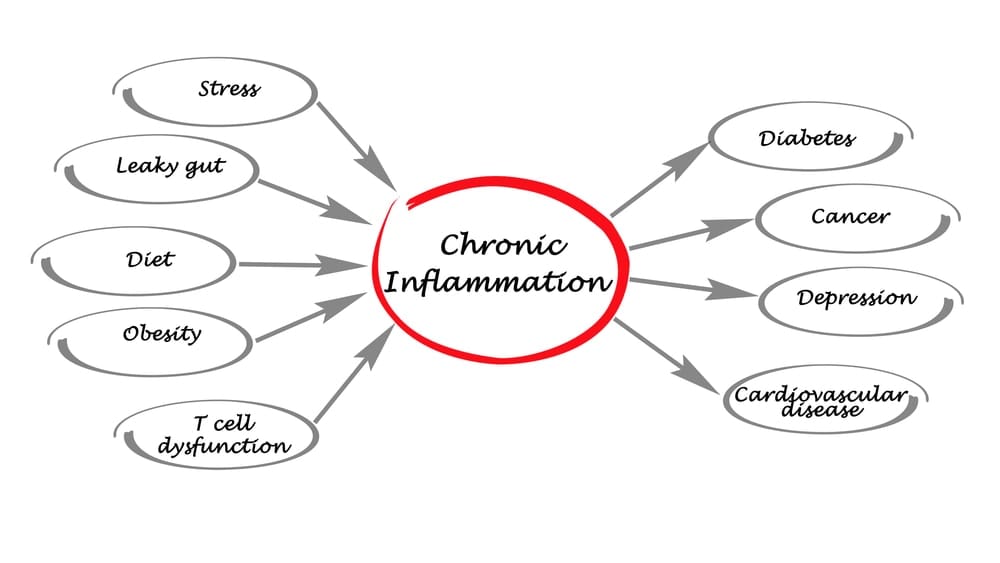
However, the damage will continue as long as a diet with processed foods and irritants continues to be consumed. This can lead to problems like high blood pressure, cholesterol, diabetes, cancer and even lead to heart attacks.
Nate Diaz follows a predominantly vegan diet which is naturally high in anti-inflammatory foods like fruits, vegetables, nuts, and seeds. Such a diet can help speed recovery after training and fights by reducing inflammation.
Hormonal Imbalances
The hormonal system in the body is a very delicate balancing act. We are dependent on hormones for nearly all of our body processes; a change in one hormone causes a cascade reaction to the rest of our system. Many of the preservatives and chemicals found in processed food are endocrine disruptors, which means they disrupt the proper flow of hormones in our bodies.
The neurotransmitters in our brain respond directly to hormones. Serotonin and dopamine are two of the primary hormones and neurotransmitters that are used to regulate our moods and emotions.
When they begin to be disrupted, people experience anxiety, moodiness, and depression. The hormone insulin regulates the absorption of sugars into our cells. Energy bars, energy drinks, sugary food, and fast food throw our insulin levels into wild swings between excessive and deficient.
Insulin impacts serotonin levels in the brain, creating false feelings of happiness. Testosterone is the hormone primarily responsible for muscle building. Wrestlers and boxers who use steroids cause a false increase of testosterone and build muscle quickly. The endocrine disruptors in processed foods block the production of testosterone, leading to muscle atrophy.
Sex is dictated by testosterone. The loss of testosterone in men because of a depressed metabolism in a poor diet is relatively common in our society. It causes a lower desire for sex, erectile dysfunction, and the inability to keep up with younger generations.
Adrenal Burnout - Addison's Disease
Several of our hormones are produced in the adrenal glands. As the body tries to compensate for a depressed metabolism, the adrenals begin pushing out more of regulatory hormones to keep the body functioning normally.
The stress hormones cortisol, epinephrine (adrenaline) and norepinephrine (noradrenaline) are produced in the adrenals. Eventually, the high production of the stress hormones causes the adrenal gland to become fatigued, and the body begins functioning abnormally. The same thing happens to the pancreas when excessive amounts of sugar get consumed. Eventually, the pancreas can no longer produce enough insulin to support the body’s needs.
Think for a moment what would happen if your body could not produce enough fight or flight hormones and some jerk jumps you? Would you be able to defend yourself? How about making it through a competition?
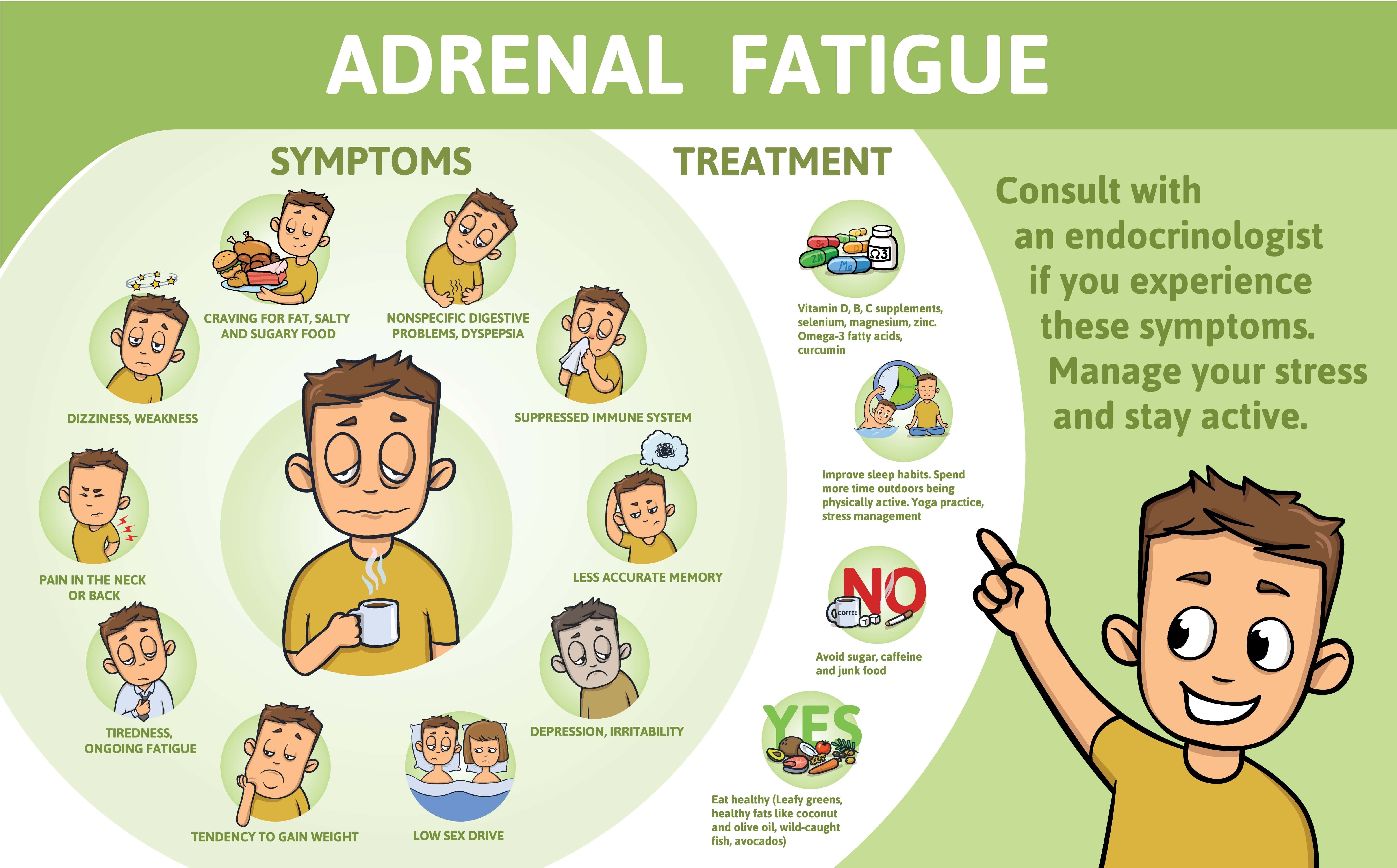
Digestive Issues
A poor diet is a primary cause of all digestive issues. A poor diet is one of the causes of metabolic dysfunction. Most of the time, digestive issues cause pain that causes the body to instinctually curl upon itself for protection. This instinct disrupts our balance, makes proper stances difficult, and slows our reaction times.
In a self-defense situation, adrenaline does not overcome this liability. The opposite is true: you will curl up further, preventing any kind of defensive reaction, as your core muscle lock down. Any training you had will be negated by the digestive problems.
Leaky Gut
When the intestine loses the ability to maintain proper ion channels to direct nutrients from the intestine to the rest of the body, this condition is known as leaky gut.
Larger molecules can then travel directly from the intestine into the bloodstream, causing pain, inflammation, and immune hyperactivity.
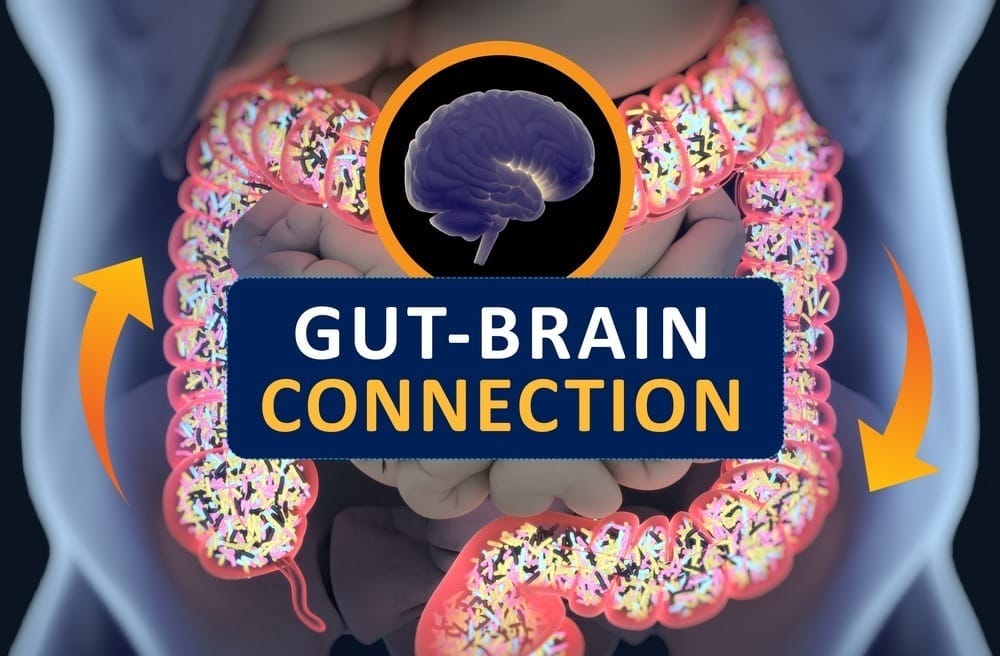
Irritable Bowel Syndrome
IBS is inflammation from the esophagus through the small intestine. The foods that cause this are generally processed foods, bread, pasta, candies and cookies, and soda and alcohol. Energy drinks and protein bars are also well-known culprits.
The inflammation in the intestine blocks the ability of the body to absorb nutrients properly. The body can retain too many wastes, or it ends up flushing out food before adequately digested. Pain is a traditional sign of IBS.
Reflux – GERD
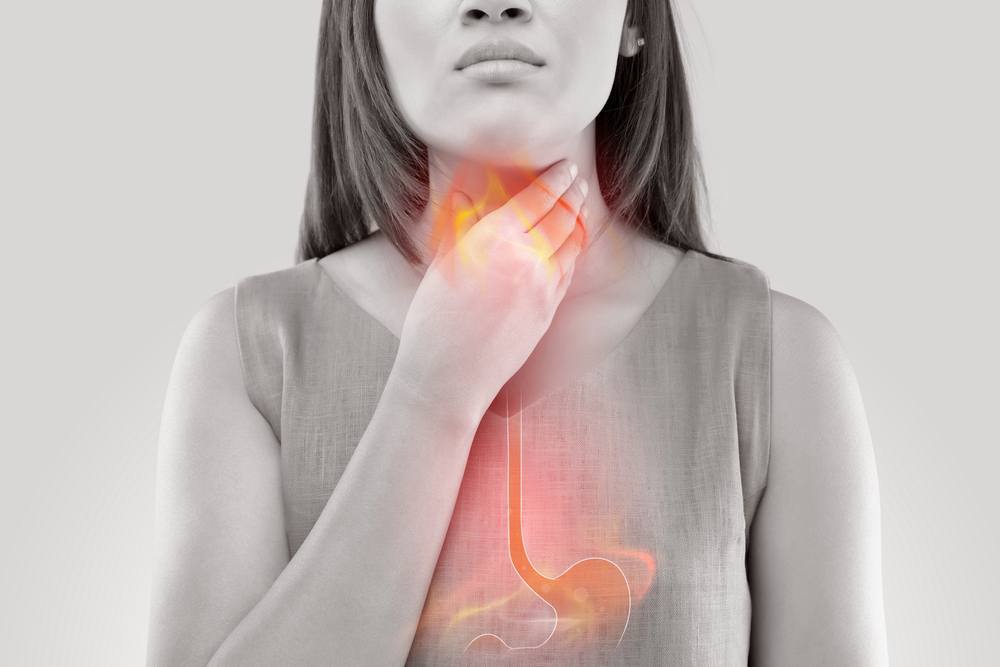
If the stomach is too full or not producing enough acid to digest the food eaten, some of it may pass back up the esophagus, causing pain.
The same problem foods cause this: bread, pasta, processed foods, soda, energy drinks, protein bars and protein drinks are the triggers. Over time, the repeated acid damage can cause permanent scarring and cancer. Stress and increased cortisol over long periods of time can trigger GERD.
Diarrhea And Constipation
Poor food choices cause the gut to try and evacuate the bad stuff as quickly as possible. This leads to diarrhea. Chronic diarrhea is a sign of more severe problems. Frequent bouts can cause dehydration and electrolyte imbalance.
Constipation is more common. If you have less than three bowel movements per day, you are technically constipated. However, most people have trained themselves to evacuate their bowels once per day. Most doctors and nutritionists see a daily bowel movement as healthy enough not to cause concern. Constipation can cause edema, pain, and toxin reabsorption. Prostate cancer has been linked to constipation in men.
Some people alternate between diarrhea and constipation. This is a more pressing concern. It is a sign that the muscles in the digestive system are not working correctly and the hormonal signals to evacuate the bowel are not functioning. Over time, this problem can cause cancer, an enlarged colon, and hemorrhoids.
If you think even infrequent bouts of diarrhea and constipation aren’t concerning think again: When the lower bowel functions are blocked, it causes all the muscles in the hips to contract. This affects all your stances, making them higher and less fluid. The fast footwork in MMA and the open base stances of Kung Fu become limited when you’re in pain.
Low Energy + Low Metabolism = Low Fitness
Become a Fitter Fighter With Us!
Intestinal Bacterial Flora
There are over 100 trillion bacteria that live in your mouth, through your stomach, into your intestine, and even on your skin. These bacteria are all helpful in their proper place, but can become disastrous and others.
For example, E.coli is beneficial in our large intestine to break down certain types of tough fibers. The candida bacteria, which has been the subject of many detox diets, is useful in high pH environments where it helps the absorption of specific nutrients and aids in complex carbohydrate digestion. The problem comes when bad bacteria flourishes and good bacteria die off.
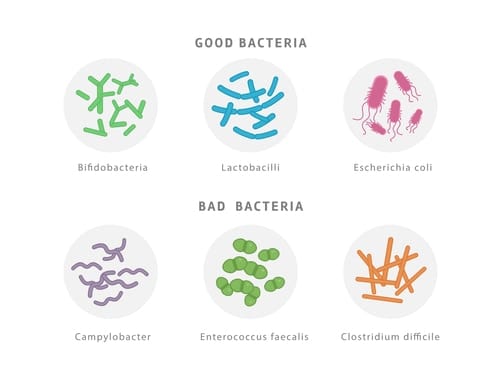
In the past and today in many Asian cultures, fermented foods play a huge role in the diet many people and they are exposed on a daily basis to the positive probiotics. This helps replenish the gut with good healthy bacteria. In the Standard American Diet, fermented foods have been virtually eliminated.
Various studies have linked an imbalance in gut flora to nearly all digestive problems and issues such as depression, anxiety, weight gain, metabolic depression, and eczema.
Heart and Blood Problems
Our hearts are one of the most important organs in our body. Any inflammation in the heart can cause pain, weakness, and fatigue. As your metabolism slows down, the body can respond to many of these issues with increasing blood pressure and cholesterol production to fix the problem.
How well can you survive competitions, fights, or a self-defense situation if your heart hurts, you risk aneurism, or there isn’t enough room in your arteries to support fast flowing blood?
High Cortisol
Cortisol is a hormone produced to help the body deal with stressful situations.
It increases our alertness and focus. In today’s society, we are constantly bombarded by stressful situations with no respite. Exercise and physical activity produce counter hormones that reverse any damage done by cortisol.
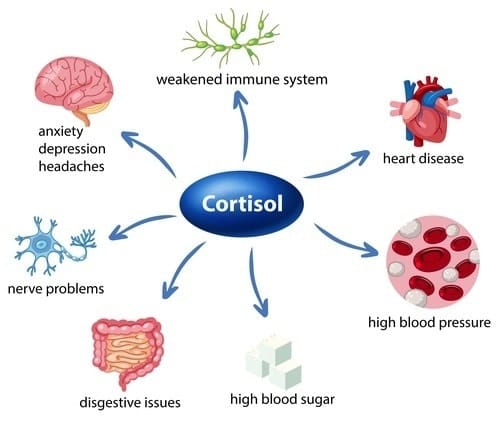
High cortisol levels have been linked to increased rates of heart attacks and heart failure. It is also a warning sign for increased cholesterol, inflammation, and other heart-related problems.
Some competition fighters have heart problems later in life from the stress of preparing to fight without enough physical release. Physical endurance and performance become negatively impacted when cortisol, and other hormones, are allowed to build up over time.
High Blood Pressure
Blood pressure is a sign of how much force your heart is placing on the arteries and veins of your body during different cycles of a heartbeat. In normal conditions, the veins and arteries are incredibly flexible and move with the heartbeat.
As your metabolism starts breaking down, the arteries and veins can no longer respond as fluidly to each beat of the heart. Blood pressure increases because there's not enough room for the blood to flow. The heart also experiences contraction issues because it does not have enough nutrients to beat correctly. Dehydration is also a contributing factor. The blood is one of our largest stores of fluid and in a dehydration condition, it can pull some of that fluid to make sure other organs function adequately.
As the blood thickens, it is more difficult to push through the veins, and the heart must be harder. This is a contributing factor to people who have heart attacks and aneurysms after a self-defense situation.
The stress hormones flood the body, increasing blood pressure and heart rate. For people with elevated blood pressure, this can be fatal.
Conversely, repeated injury causes high blood pressure. The body reacts to the stress of repeated injury by increasing the systems that help escape: heart rate, blood pressure, and breathing. In this case, steady practices of meditation and relaxation breathing helps.
High Cholesterol
Cholesterol is a molecule used to build healthy tissues. When damage is done to the body, such as a bruise or a laceration, the body releases cholesterol wrapped up in low-density lipoprotein (LDL). That protein takes the cholesterol to the side of damage where other catabolic processes begin building healthy tissue. Once the damage is fixed, high-density lipoproteins (HDL) remove any excess cholesterol from the body.
The body cannot use cholesterol and fat eaten to directly influence cholesterol levels in the body. Therefore, blood cholesterol has little to do with the cholesterol and fat you eat.
Inflammation is a typical issue for people with high cholesterol. The body is trying to heal the damage, often in the intestines caused by a poor diet, which is depressing your metabolism. When people switch to a natural diet, low in irritating foods, the body heals and no longer needs high cholesterol levels.
Anemia
When the body does not produce healthy blood cells because of low iron, it is not able to carry enough oxygen around the body to support high-intensity exercise and training. People feel fatigued and sluggish when they have anemia.
Anemia comes from two sources, one is an inherent problem, such as a genetic defect or autoimmune issue. It's rare, so you're more likely to have the more common dietary caused anemia. A processed food diet tends to be low in red meat, the primary source of hemolytic iron the body prefers to use to make healthy blood cells.
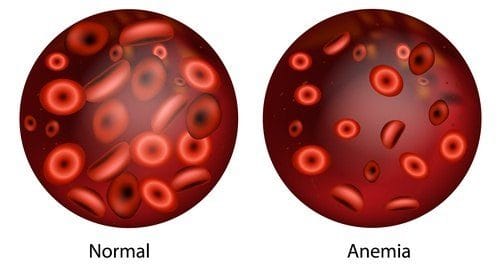
Weak Lungs And Breathing Problems
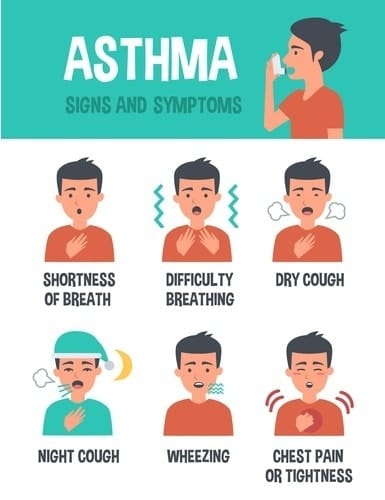
Most breathing problems are a secondary result of other issues. For people who are anemic, they tend to breathe faster and heavier as the body tries to get enough oxygen throughout the body.
People who experience heart problems tend to breathe higher in their chest to avoid putting pressure on her heart. People with digestive issues tend to circumvent diaphragmatic breathing because that place is pressure on the stomach and intestine.
If you have breathing problems, you most likely avoid high energy martial arts, like Kung Fu or Capoeira. However, these types of martial arts are perfect for helping you breathe properly and work through stress hormones.
After Tito Ortiz's lung collapse, Ortiz likely focused on foods high in antioxidants, such as fruits and vegetables, to support lung health.
A diet high in antioxidants can help reduce inflammation in the lungs and improve lung function.
Poor posture caused by pain, habit, and fatigue reduces your ability to breathe [Han, J. et al. (2016) Effects of forward head posture on forced vital capacity and respiratory muscles activity. Journal of Physical Therapy Science, 28(1) p. 128–131.]. The proper stances of Kung Fu and Japanese martial arts help open up the shoulders and chest to allow deeper breathing.
Bas Rutten, Former UFC Heavyweight Champion, has spoken about using a diet rich in omega-3 fatty acids, found in foods like fish and flaxseeds, to help manage his asthma. These fatty acids have anti-inflammatory properties which can help improve lung function.
Toxicity
The body produces various waste products and metabolites during the metabolic process. The lymphatic system is our primary system to clear out these wastes.
Toxicity happens when the lymphatic system is overwhelmed, or people do not move around and exercise enough to keep the system cleared out. Brief bouts of exercise surrounded by a sedentary lifestyle also cause lymphatic sluggishness. As the waste products build up, the body has to engage other systems to discard wastes.
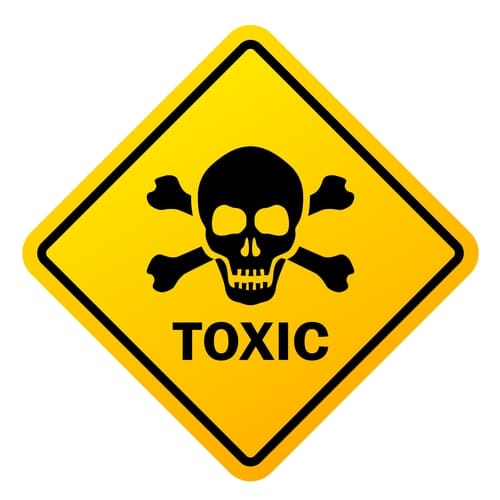
This places a tremendous amount of stress on the body. Detoxes and cleanses help, but are useless when toxins are put back into the body from an unhealthy diet. Many of the chemicals absorbed from a processed food diet mimic hormones and co-factors that are involved in the energy production process of metabolism. Many of these chemicals slow down or completely stop this energy cycles.
Cancer
It sounds completely ironic, but cancer increases our metabolism. It robs the body of essential nutrients, oxygen, and blood to feed an out-of-control growth cycle. Because the rest of the body is robbed of essential nutrients, many people feel fatigued and worn down when they have cancer. It’s not because the metabolism is depressed; all of the energy is used to support the new cancerous growth.
Many of the diets that are used to holistically treat cancer focus on supplying a tremendous amount of nutrients to support the rest of the body while robbing the cancer cells of some of the most needed and essential nutrients, mainly sugar and iron.
Weakened Bones
Our bones grow and replace themselves approximately every ten years. The catabolic processes that form new bones are working all of the time.
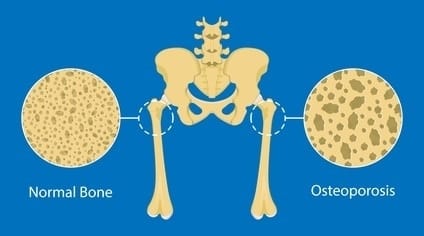
In the Standard American Diet, calcium and magnesium are highly deficient, yet the primary nutrients for building healthy bones.
This slows the production of new bone tissue and creates an open lattice structure that weakens the bones. Weak bones also produce lower-quality blood cells.
In the grappling and striking exercises of martial arts like Jujitsu, the risk of broken bones and fractures increases as your metabolism decreases. Even your ability to repair the damage is hindered.
Food for Thought
A poor diet causes many of the metabolic conditions that we're dealing with and their effects. As we age, our metabolisms don't slow down, but we put enough stress upon it that it doesn't work correctly. This poor diet causes all sorts of digestive problems.
Using a proper diet, proper exercise, and drinking plenty of water helps stabilize our metabolism, so we have plenty of energy, excellent healing abilities, and the awareness of our surroundings to avoid any potentially hostile situation.

Frequently Asked Questions
How Does Metabolism Affect Combat Athletes?
Metabolism significantly impacts a combat athlete's performance, as it governs how their body uses nutrients for energy, recovery, and performance. Metabolism regulates the conversion of fats and carbohydrates into energy during intense activity, aids in muscle repair and growth post-exercise, and guides weight management strategies, vital for athletes competing in specific weight classes.
Why Are Micronutrients Important in Combat Sports?
Micronutrients, such as vitamins and minerals, are critical for combat athletes as they assist in energy production, bone health, muscle function, immune response, and oxidative stress reduction. They enable the body to convert food into energy, maintain bone integrity, support muscle contractions, boost immune health, and fight free radicals, enhancing overall performance and recovery.
What are the Nutritional Guidelines for Combat Athletes
Nutritional guidelines for combat athletes emphasize a well-balanced diet, adequate hydration, and strategic timing of nutrient intake. Athletes should consume a diet rich in complex carbohydrates for sustained energy, sufficient proteins for muscle repair and growth, and healthy fats for long-term energy needs. Proper hydration is vital, especially during training and competition, to replace fluids lost through sweating. The timing of nutrient intake is also critical, with carbohydrates and proteins needed post-exercise to aid recovery, and a balanced meal consumed several hours before activity for optimal performance.
